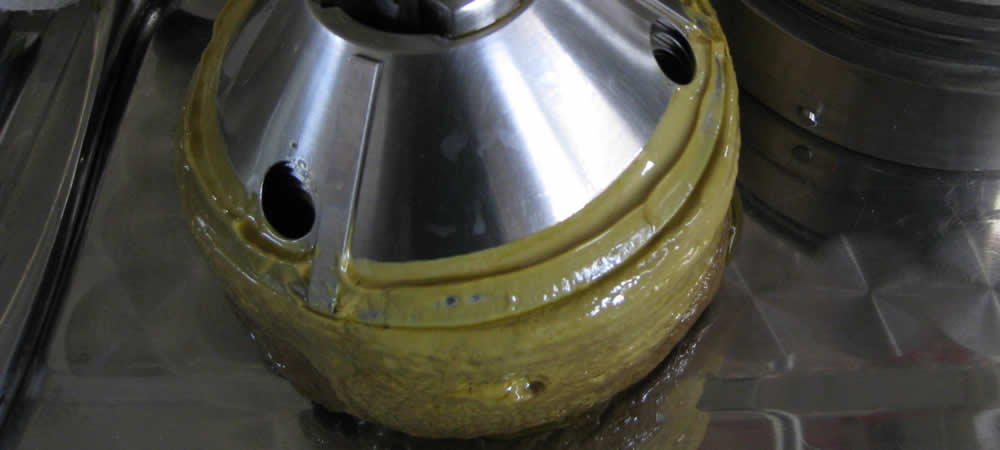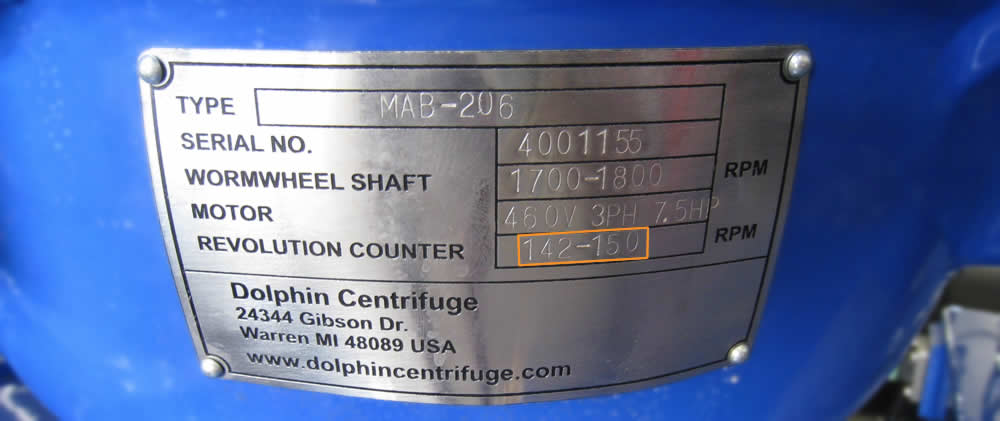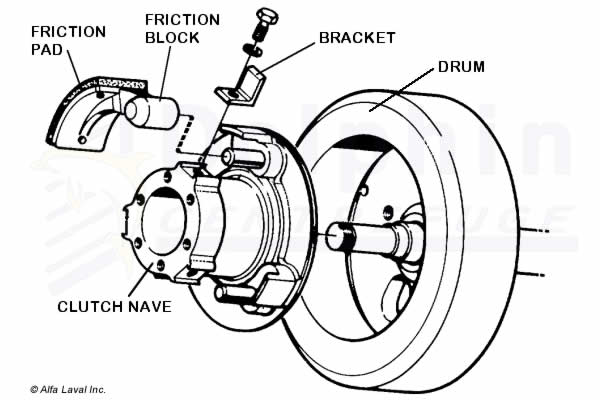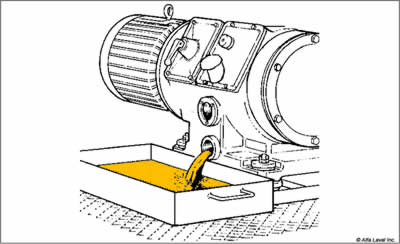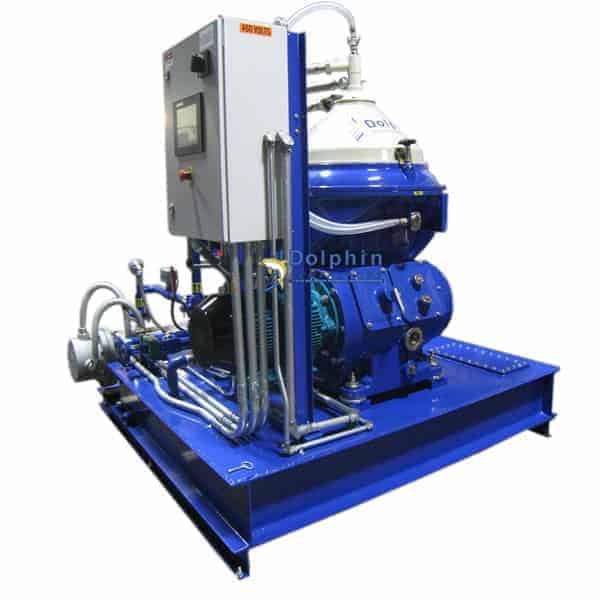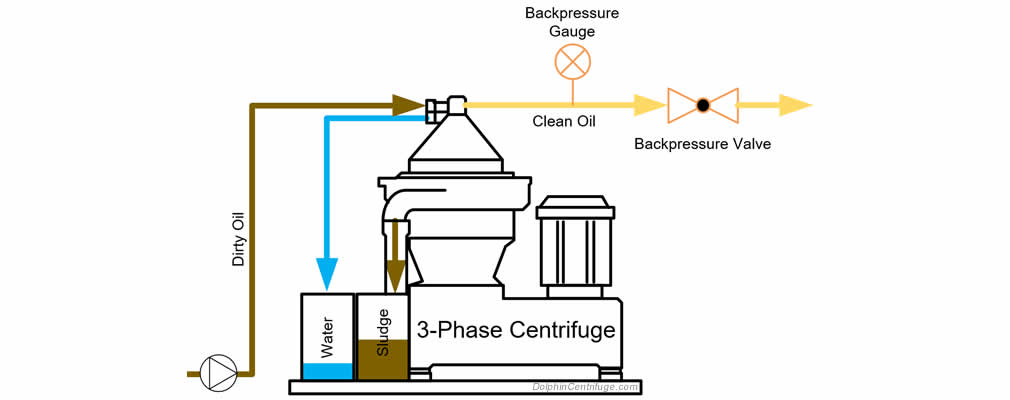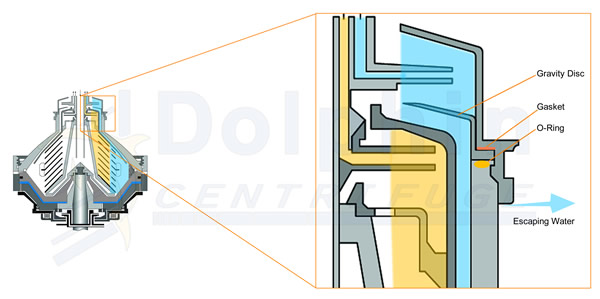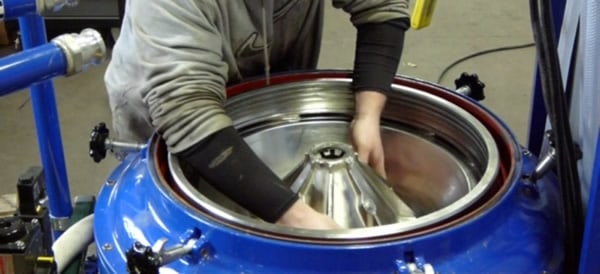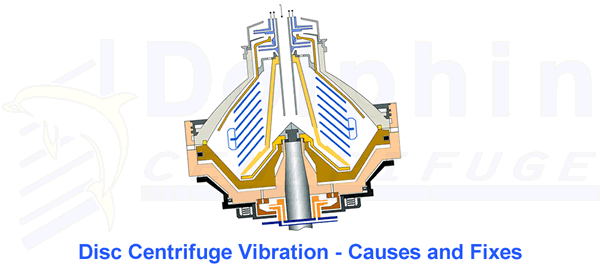Excessive sludge can potentially clog the bowl discs in a disc stack centrifuge. If the sludge enters the inter-disc space, it blocks the passage for fluid to pass between discs. This condition is known as a clogged disc stack, drastically affecting the centrifuge performance. Clogged bowl discs can also be a safety issue and should… Continue reading Disc Stack Centrifuge Troubleshooting | Clogged Bowl Discs
Category: Disc Stack Centrifuge Troubleshooting
10 Reasons a Disc Centrifuge Cannot Reach Operating Speed
A disc stack centrifuge uses the centrifugal force it generates to separate the liquid from solid and liquid from liquid. The centrifugal force exerted is a direct function of the bowl’s rotating speed. A disc centrifuge cannot reach operating speed due to several reasons. In this article, we will explore the causes and relevant fixes… Continue reading 10 Reasons a Disc Centrifuge Cannot Reach Operating Speed
Disc Centrifuge Friction Clutch Maintenance: A complete guide
If you have an Alfa Laval disc stack centrifuge, it is crucial to know how to maintain the friction clutch to avoid centrifuge breakdowns and unplanned maintenance downtime. Also, a worn-out clutch causes a host of other issues for the centrifuge in the long run. This article discusses the maintenance and repair of the friction… Continue reading Disc Centrifuge Friction Clutch Maintenance: A complete guide
Disc Stack Centrifuge Lubrication | Working, Freq, Oil Volume & Specs
Disc Stack Centrifuge Lubrication | Working, Freq, Oil Volume & Specs Disc stack centrifuge lubrication is an essential part of the regular maintenance required to ensure the operating reliability of the centrifuge. Lubricating oil is the primary lubricant used in the disc centrifuge transmission housing. The most important consideration when changing the oil is the… Continue reading Disc Stack Centrifuge Lubrication | Working, Freq, Oil Volume & Specs
Waste Oil Emulsion Breaking with an Industrial Centrifuge
Synopsis Disc-stack type industrial centrifuges exert a very high centrifugal force on emulsified oils. This force can break waste oil emulsions by mechanical separation. Thus, industrial centrifuges recover clean oil from waste oil emulsion on a large scale. What is an emulsion? When two immiscible liquids mix to form one liquid phase – that combined… Continue reading Waste Oil Emulsion Breaking with an Industrial Centrifuge
Disc Centrifuge Backpressure | A Comprehensive Guide
What is Backpressure in Disc Centrifuges? A paring disc pump within the disc centrifuge bowl converts the rotational momentum of the fluid into pressure. This pressure causes the liquid to discharge out of the bowl. Any restriction in the discharge passage of the liquids exerts pressure on the bowl. This externally created pressure is known… Continue reading Disc Centrifuge Backpressure | A Comprehensive Guide
Disc Centrifuge Liquid Seal Break or Breakover | Causes, Detection, Fixes
What is Liquid Seal Break or Breakover in Disc Centrifuges? During the normal 3-phase separation process in a disc-stack centrifuge, the heavy phase (typically water) forms a liquid seal around the periphery of the bowl. Under certain conditions, the light phase pushes out the heavy phase and escapes through the heavy phase outlet. This operating… Continue reading Disc Centrifuge Liquid Seal Break or Breakover | Causes, Detection, Fixes
Disc Stack Centrifuge – Top 10 Mechanical Issues & Fixes
Synopsis Like all mechanical equipment, disc-stack centrifuge users encounter mechanical issues with their machines. Some of these problems are simple to fix and don’t have any long-term effects on the centrifuge. On the other hand, some of the mechanical issues mentioned below can cause severe damage to the centrifuge if not timely rectified. Centrifuge Excessive… Continue reading Disc Stack Centrifuge – Top 10 Mechanical Issues & Fixes
6 Causes of Disc Stack Centrifuge Bad Separation
Synopsis Disc Centrifuge separation results depend on internal (centrifuge specific) and external (process fluid-related) factors. In this article, we discuss the common reasons behind disc stack centrifuge bad separation. We will first discuss internal, i.e., centrifuge-related causes of bad separation results. Following this, we will discuss external factors that often affect separation results. Disc Centrifuge… Continue reading 6 Causes of Disc Stack Centrifuge Bad Separation
10 Causes & Easy Fixes for Disc Stack Centrifuge Vibration
Disc stack centrifuges contain a metal bowl that rotates at a high RPM. Any rotating mass that is not correctly balanced causes vibrations. Therefore all disc stack bowls generate vibrations to varying degrees in the centrifuge under normal conditions. Under certain conditions, the disc centrifuge may vibrate more than usual, which is a cause of… Continue reading 10 Causes & Easy Fixes for Disc Stack Centrifuge Vibration
